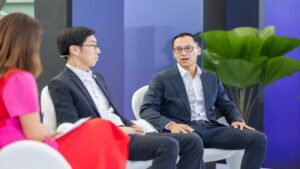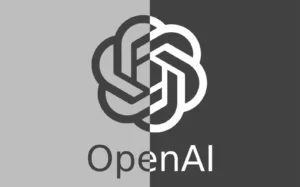OpenAI Hires Three Leading Engineers from DeepMind

OpenAI Expands Team with New Hires from Google DeepMind
In a notable move, OpenAI has announced the hiring of three senior engineers from Google DeepMind, who will join their newly opened office in Zurich, Switzerland. This strategic recruitment aims to enhance OpenAI’s capabilities in multimodal artificial intelligence.
New Additions to OpenAI’s Team
The engineers joining OpenAI are Lucas Beyer, Alexander Kolesnikov, and Xiaohua Zhai. They will focus on developing multimodal AI systems, which are designed to handle tasks across different formats, such as images and audio. This move comes as OpenAI continues to lead innovations in multimodal AI, having released its first text-to-image platform, Dall-E, in 2021.
OpenAI’s flagship product, ChatGPT, originally started with text-only interactions. Over time, the company incorporated voice and image features, adapting to the growing demand for versatile AI functions. The latest version of Dall-E, which allows users to generate images based on text prompts, is now integrated directly within ChatGPT.
Insight into the New Hires
Lucas Beyer, who has been vocal about the AI landscape on social media, has shown a keen interest in OpenAI’s research throughout his tenure at DeepMind. His observations and analyses were shared with his substantial following, providing insights into AI’s evolution. Following the controversial ousting of OpenAI’s CEO, Sam Altman, Beyer reflected on social media about the potential reasons for such corporate turbulence.
Competitive Landscape for Talent
As companies compete to create cutting-edge AI technology, there is a fierce race to attract top talent worldwide. Compensation packages often reach impressive sums, approaching seven figures. It’s not uncommon for leading researchers to switch between companies, particularly given the competitive nature of the industry.
In a related development, Tim Brooks, who once co-led the research on OpenAI’s unreleased video generation tool, Sora, has transitioned to DeepMind. Meanwhile, Microsoft also recently recruited notable figures from the AI sector, including Inflection AI’s Mustafa Suleyman, further illustrating the trend of talent migration between major tech firms.
Departure of Key OpenAI Figures
Over the past months, several significant figures have left OpenAI, either to join competitor companies or to start their own ventures. Notable exits include Ilya Sutskever, co-founder and former chief scientist of OpenAI, who is launching a startup called Safe Superintelligence, which aims to address issues related to AI safety. Additionally, Mira Murati, the former chief technology officer, is reportedly in the process of raising funds for her new AI project.
OpenAI’s Global Expansion Plans
OpenAI’s recent hiring decisions align with its broader strategy to expand its global footprint. The company is not only establishing its presence in Zurich but is also planning to open offices in several major cities, including New York City, Seattle, Brussels, Paris, and Singapore. This expansion comes alongside existing offices in other key cities around the world.
Zurich as a Tech Hub
The decision to locate the new office in Zurich reflects the city’s emerging status as a technology hub. Zurich is home to ETH Zurich, a prestigious public research university known for its strong computer science program. The city has attracted top AI talent, with reports of other tech giants, like Apple, also recruiting AI specialists from Google to work at their European lab in Zurich.
OpenAI’s strategic focus on multimodal AI and its global expansion reflects the ongoing evolution of artificial intelligence and the competitive dynamics within the tech industry. The company’s commitment to hiring top talent marks a significant step in its mission to innovate and advance AI technologies.






